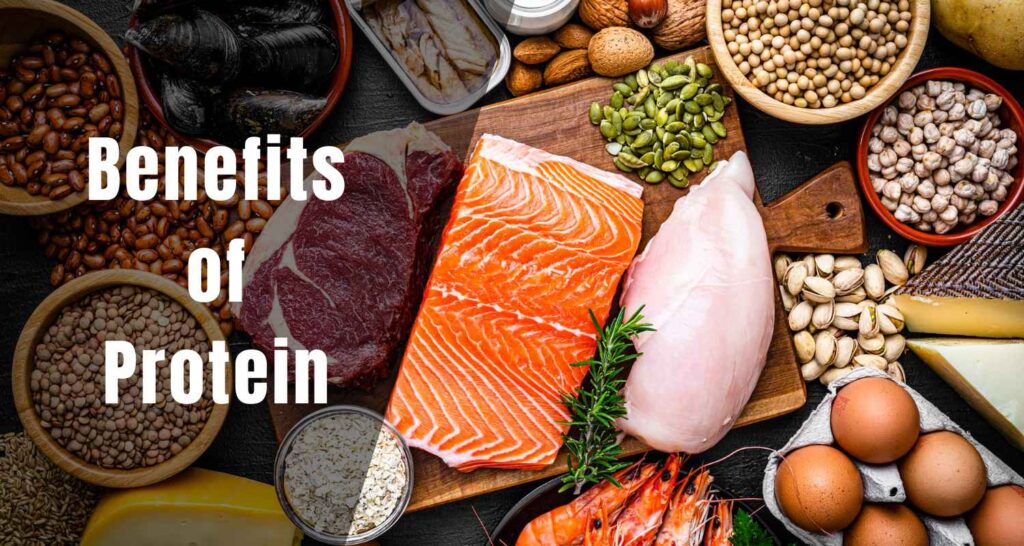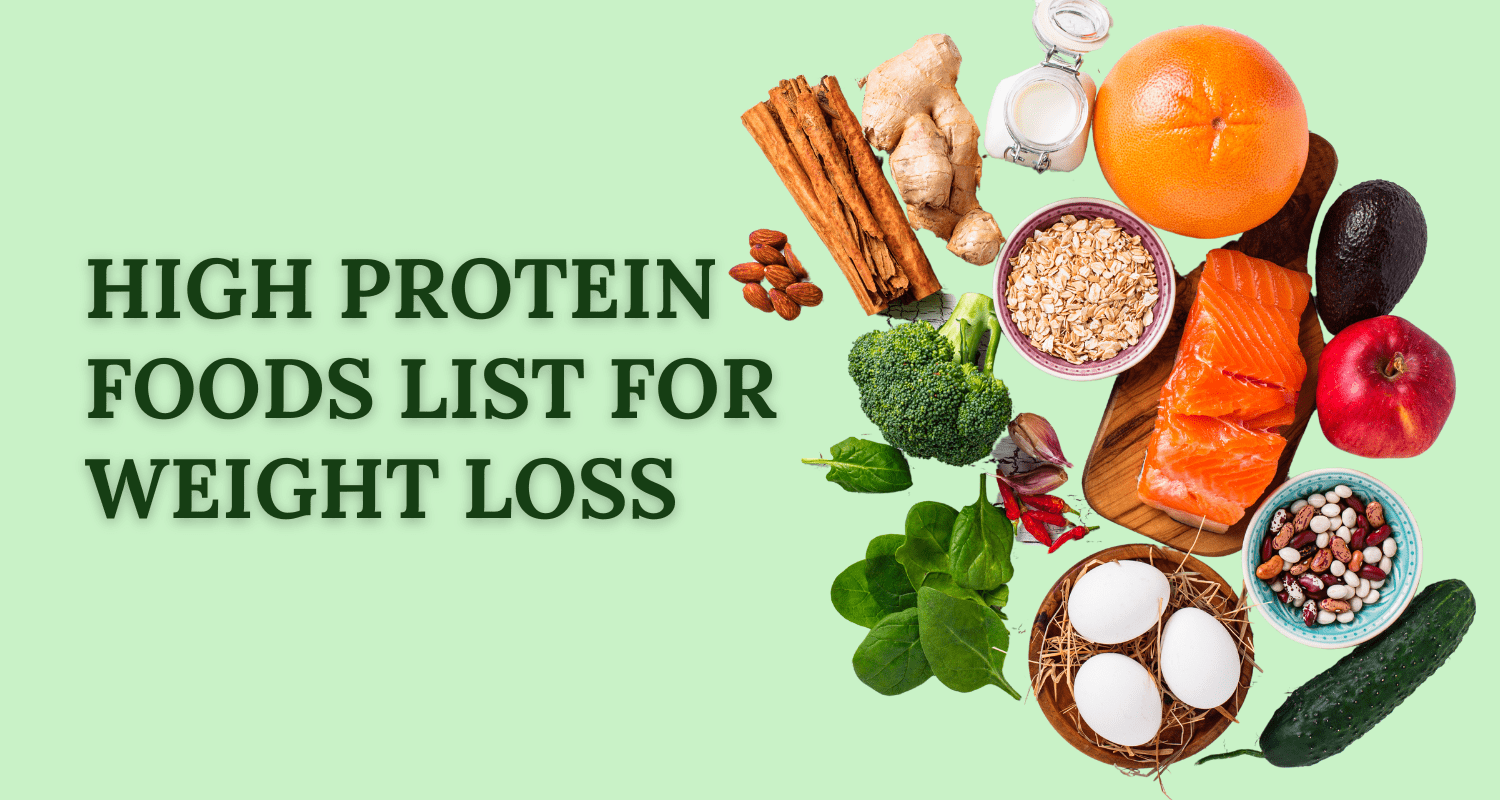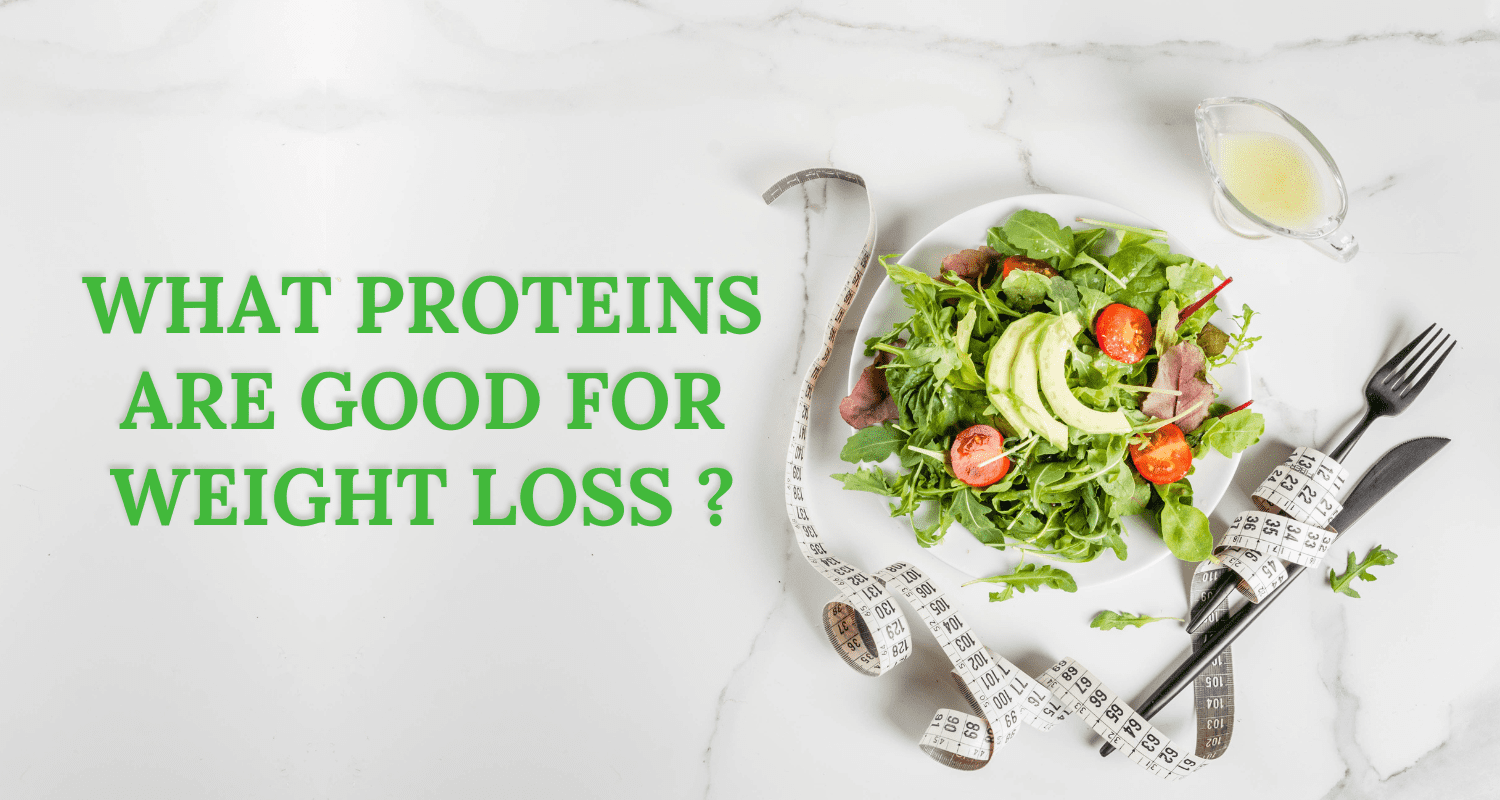Did you know that protein is an essential macronutrient required for almost every function in our bodies?
From building and repairing tissues to supporting our immune system, protein plays a crucial role in maintaining our overall health and well-being. In this article, we will explore the numerous benefits of protein and why it is important to include it in our daily diet.
Let’s explore what are the benefits of protein.
Key Takeaways:
- What are the benefits of protein? Protein is essential for muscle repair and growth.
- Why protein is important? Protein can aid in weight management by boosting metabolism.
- Adequate protein intake improves athletic performance and supports recovery.
- Understanding the importance of protein can assist in nutrient absorption, ensuring optimal utilization.
- For protein health benefits including it in our diet can promote healthy aging by preserving muscle mass and supporting overall well-being.
Protein and Muscle Repair
There are numerous protein benefits for body, and one of its key advantages is its ability to aid in muscle repair. When we engage in physical activities such as exercise or strength training, our muscles undergo stress and damage.
Protein plays a crucial role in repairing and rebuilding these muscles, leading to faster recovery and improved strength.
During exercise, small tears occur in the muscle fibers, causing soreness and inflammation. Protein contains essential amino acids that are vital for muscle tissue repair and growth.
When we consume protein-rich foods, these amino acids are broken down and transported to the damaged muscles. Here, they contribute to the synthesis of new proteins, allowing the muscles to repair and rebuild themselves.
Moreover, on what are the benefits of protein, protein benefits the body by increasing the muscle’s capacity to adapt and grow stronger. It stimulates the production of new muscle fibers, leading to muscle hypertrophy and improved overall muscle function. With adequate protein intake, individuals can experience enhanced muscular endurance and performance.
To optimize muscle repair and growth, it is important to consume protein within the recommended range. The exact protein requirements vary depending on factors such as age, sex, and activity level.
However, a general guideline is to consume approximately 0.8 to 1 gram of protein per kilogram of body weight. The protein requirements may be higher for individuals engaging in intense physical activity or resistance training.
Protein-rich sources include lean meats, poultry, fish, eggs, dairy products, legumes, and tofu. The combination of high-quality protein with carbohydrates after exercise has been shown to have a synergistic effect on muscle repair and glycogen replenishment.
Benefits of Protein for Muscle Repair:
- Enhanced muscle repair and recovery: Protein aids in repairing and rebuilding damaged muscle tissue, leading to faster recovery after exercise or physical activity.
- Increased muscle strength and endurance: Protein helps in muscle hypertrophy, contributing to improved strength, endurance, and overall muscle function.
- Optimized muscle adaptation: Adequate protein intake supports the production of new muscle fibers, enhancing the muscles’ capacity to adapt and grow stronger over time.
Protein for Weight Management
When it comes to managing weight, protein can be a valuable ally. Its unique benefits make it a go-to nutrient for individuals aiming to achieve their weight loss goals.
One of the key advantages of protein is its higher thermic effect compared to carbohydrates and fats. This means that the body requires more energy to digest and absorb protein, resulting in increased calorie burning during the process. The thermic effect of protein can help boost metabolism, allowing the body to burn more calories even at rest.
Moreover, protein has a satiating effect, helping to curb appetite and reduce food cravings. By incorporating protein-rich foods into your meals and snacks, you can increase feelings of fullness and satisfaction, which can contribute to better control over calorie intake.
Additionally, protein benefits for weight loss can help preserve lean muscle mass during weight loss journeys. As you lose weight, some of the weight lost may come from muscle mass.
However, a diet rich in protein can help minimize muscle loss, allowing you to maintain a healthy body composition. Preserving muscle mass is important as it helps support metabolism and contributes to a toned and fit physique.
When planning a weight management strategy, consider incorporating protein-rich foods such as lean meats, poultry, fish, eggs, dairy products, legumes, and plant-based protein sources. These options provide not only the protein your body needs but also essential nutrients necessary for overall health and well-being.
Protein Benefits for Weight Management:
- Higher thermic effect, resulting in increased calorie burning
- Satiating effect, curbing appetite, and reducing food cravings
- Preserving lean muscle mass during weight loss
By prioritizing protein in your diet, you can take advantage of its weight management benefits while still enjoying a variety of delicious and nutritious foods.
Protein for Athletic Performance
Athletes and individuals who engage in regular physical activity can greatly benefit from incorporating protein into their diet. Protein benefits for athletes offer a range of advantages that enhance athletic performance and support overall fitness goals.
Building Blocks for Muscle Growth and Repair
Protein serves as the essential building block for muscle growth and repair. During intense workouts and training sessions, muscles undergo stress and micro-tears.
Adequate protein intake ensures the availability of amino acids necessary for muscle tissue repair and growth, leading to increased strength and improved performance.
Enhanced Recovery
Protein plays a critical role in post-exercise recovery. Ingesting protein after a workout helps replenish glycogen stores, reduces muscle soreness, and promotes faster recovery.
By providing the necessary nutrients, protein aids in repairing damaged muscle fibers and mitigating exercise-induced inflammation, allowing athletes to bounce back quicker and train at higher intensities.
Improved Athletic Performance
Regular protein intake can significantly enhance overall athletic performance. Protein supports the development of lean muscle mass, which improves power, agility, and endurance.
It also helps optimize oxygen transport and utilization, enhancing cardiovascular performance during endurance activities. By providing the necessary fuel and nutrients, protein contributes to increased energy levels and sustained performance during rigorous exercise.
Regarding athletic performance, protein offers numerous benefits that give athletes a competitive edge. From muscle growth and repair to enhanced recovery and improved overall performance, protein is an invaluable asset for those striving to excel in their respective sports.
Protein and Nutrient Absorption
Protein plays a vital role in the absorption of essential nutrients in our bodies. It acts as a transportation system, delivering important vitamins, minerals, and other essential nutrients to various cells and tissues, ensuring optimal nutrient utilization. This process is crucial for maintaining overall health and well-being.
When we consume protein-rich foods, such as lean meats, fish, dairy products, and legumes, our bodies break down the proteins into amino acids. These amino acids then enter the bloodstream and travel to different parts of the body, delivering the necessary nutrients.
- Vitamins and minerals: Protein helps carry these micronutrients throughout the body and assists in their absorption and utilization.
- Iron: Adequate protein intake is essential for efficient iron absorption, as iron is a crucial nutrient for oxygen transport and energy production.
- Calcium: Protein aids in the absorption of calcium, which is vital for strong bones and teeth.
Additionally, protein helps stabilize blood sugar levels by slowing down the digestion and absorption of carbohydrates. This can be particularly beneficial for individuals with diabetes or those looking to manage their blood sugar levels.
By including protein-rich sources in your diet, such as lean meats, poultry, fish, eggs, dairy products, legumes, and nuts, you can optimize nutrient absorption and ensure your body receives the necessary vitamins, minerals, and other essential nutrients it needs to thrive.
Protein for Healthy Aging
As we age, our bodies naturally undergo changes that can impact muscle mass, bone health, and overall well-being. However, protein can play a significant role in mitigating these effects and promoting healthy aging.
One of the key protein benefits for healthy aging is its ability to preserve muscle mass. Age-related muscle loss, known as sarcopenia, can lead to decreased strength and mobility in older adults. By consuming adequate protein, older individuals can support muscle protein synthesis and reduce the risk of muscle wasting.
In addition to preserving muscle mass, protein also contributes to the maintenance of bone health. Protein is essential for calcium absorption and utilization, which is crucial for maintaining strong bones and preventing osteoporosis, a condition characterized by weak and brittle bones.
Moreover, protein offers various advantages for overall well-being in older adults. It provides essential amino acids that support the production of neurotransmitters, promoting cognitive function and mental health.
Protein also plays a role in immune function, helping to strengthen the immune system and enhance resistance to infections and diseases.
To reap the protein advantages for healthy aging, it is recommended to consume a balanced diet that includes protein-rich foods such as lean meats, poultry, fish, dairy products, beans, and legumes. Additionally, protein supplements can be beneficial for those who struggle to meet their protein needs through diet alone.
By incorporating protein into their diet, older adults can support their overall health and well-being, preserve muscle mass, maintain bone health, and promote healthy aging.
Conclusion
In conclusion, what are the benefits of protein, protein plays a vital role in maintaining optimal health and well-being. Its benefits extend beyond muscle repair and weight management. By incorporating protein-rich foods into our diet, we can support our overall athletic performance and promote healthy aging.
Protein aids in muscle repair, facilitating faster recovery and improved strength after physical activities. Additionally, it supports weight management efforts by boosting metabolism and promoting a feeling of satiety.
Athletes and individuals engaging in regular physical activity can enhance their performance by ensuring an adequate protein intake. It provides the necessary building blocks for muscle growth and repair, enhancing overall athletic abilities.
Furthermore, what are the benefits of protein, protein contributes to nutrient absorption, ensuring the optimal utilization of essential vitamins, minerals, and other nutrients. It plays a crucial role in transporting these nutrients to different cells and tissues throughout our bodies.
Lastly, protein supports healthy aging by preserving muscle mass, promoting bone health, and overall well-being. As we age, it becomes even more important to maintain an adequate protein intake to mitigate the effects of aging on our bodies.
Incorporating protein into our diet through sources such as lean meats, poultry, fish, eggs, dairy products, legumes, and plant-based protein alternatives can provide us with the numerous advantages that protein offers.
Prioritizing a protein-rich diet is a cornerstone of maintaining optimal health and achieving our fitness and wellness goals.
FAQs
What are the benefits of protein?
Protein offers numerous benefits for our bodies. It aids in muscle repair, supports weight management, improves athletic performance, facilitates nutrient absorption, and promotes healthy aging.
How does protein help in muscle repair?
Protein plays a crucial role in muscle repair by providing the necessary building blocks for muscle growth and recovery. It helps repair damaged muscle tissues, leading to faster recovery and increased strength.
Can protein help with weight management?
Yes, protein is recommended for individuals looking to manage their weight. It has a higher thermic effect, which means it requires more energy to digest and absorb. This can help boost metabolism and support weight loss efforts.
What are the benefits of protein for athletes?
Protein provides several benefits for athletes, including muscle growth and repair, enhanced recovery, and improved overall athletic performance. It is an essential nutrient for optimizing physical performance.
How does protein contribute to nutrient absorption?
Protein plays a vital role in the absorption of essential nutrients in our bodies. It helps transport vitamins, minerals, and other important nutrients to different cells and tissues, ensuring optimal nutrient utilization.
How can protein promote healthy aging?
Protein helps preserve muscle mass, support bone health, and promote overall well-being in older adults. As we age, protein becomes even more crucial for maintaining optimal health and preventing age-related muscle loss.
Disclaimer: This content, including advice, provides generic information only. It is not a substitute for a qualified medical opinion. Always consult a specialist or your doctor for more information. Nutrition Cult does not claim responsibility for this information.




